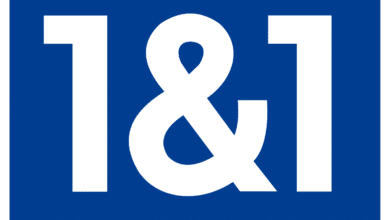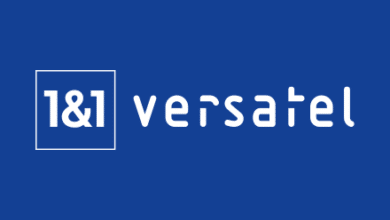
The fourth German 5G mobile network from 1&1 Mobilfunk has officially been launched. A first mobile station has been put into operation and an initial test run has been successfully carried out.
1&1 Mobilfunk: 5G network successfully launched
For about a year and a half, United Internet AG has been concretizing its own, fourth mobile network for Germany under the 1&1 brand. In April 2022, the provider revealed its intention to invest up to one billion euros in the expansion before the end of 2022.
A first live test has now been successfully carried out under real conditions, as the company announced on the business network LinkedIn.“In July, we launched the first Friendly User Test under real conditions and in real customer behavior! The results have met our predictions and were partly even above,” so 1&1.
A speed of more than 1 gigabit per second was achieved. Thus, stable data transfers with about 8 TB per customer were possible within 24 hours. Latency was also more than satisfactory at just 3 milliseconds under optimum conditions. For example, with gaming applications in the EDGE cloud.
However, the 5G network is not expected to be available for mobile use until mid-2023. At the start, only FWA (fixed wireless access) will be available, which connects to the 1&1 network in the user’s own home via a WLAN router. This is precisely what has now been tested.
Focus now on expansion
By the end of 2022, around 1,000 base stations are to be made available for 1&1 mobile communications, or so it was said as recently as April. Initially, the company wants to focus on expansion, especially in urban areas, and from there continuously build new antennas and data centers, said company spokeswoman Lisa Pleiß in an interview with Golem.de.
Above all, the telephony functions are then to start in the summer of 2023. For this, however, the 1&1 5G mobile network must first be connected to other networks, both at home and abroad.
In May 2021, Telefónica Deutschland and 1&1 Drillisch agreed on a roaming agreement. The current 11 million mobile customers automatically switch to the Telefónica network via roaming if the 1&1 mobile network is not available.
Telefónica is currently still working on national roaming, which will then be added in the summer of 2023 in parallel with the 1&1 network launch, Pleiß added.
The network relies on OpenRAN technology and is to be built “without dependencies on dominant manufacturers from China”. But from the Japanese provider Rakuten, which is considered a prime example of Open-RAN-5G.
In return, however, the company is making itself independent of providers such as Huawei, whose mobile technology in Germany is possibly on the brink of extinction anyway. Meanwhile, Vodafone is also working on an Open RAN network with its own mobile communications hardware in the 4G and 5G network.



